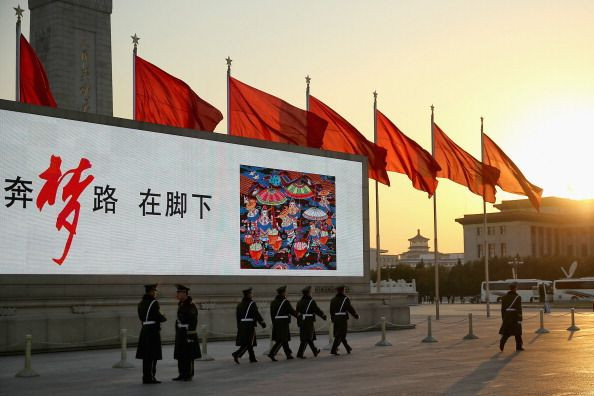Western Experts Warn Against Undue Pessimism About China Economic Growth

This story has been updated.
Fears of an economic slowdown in China are exaggerated, according to top bankers and global economic officials meeting in Washington, D.C., on Tuesday.
The leaders, who were attending the Wall Street Journal CEO Council, said there had been an overreaction in the West to sweeping political reforms outlined last week by China's Third Plenum.
World Bank President Jim Yong Kim said China is still set to grow at a healthy gross domestic product clip this year, despite concerns over a slowdown in the past six months.
Over 10 percent growth seen in broader emerging markets in the past decade are over, but economic fundamentals are still strong, he said. He forecast 5 percent-plus GDP growth in emerging markets broadly for 2014.
The biggest risk to the global economy actually depends on what happens in the U.S. in February 2014, said Kim. That’s likely a reference to looming budget and debt limit debates, alongside an anticipated start to the Federal Reserve’s gradual withdrawal from fiscal stimulus.
Former Israeli central bank chief and MIT economist Stan Fischer added that after China's Third Plenum, structural changes to the Chinese economy have been put in place, though whether they’ll be implemented smoothly is uncertain. Growth in China should stay at about 8 percent for the near future, better than many expect, predicted Fischer.
Kim seemed especially upbeat about China. He noted the country lifted 600 million people out of poverty over the past 30 years, and said its work cutting greenhouse gas emissions has slowly improved.
China’s massive level of investment in its domestic economy, at about 45 percent of GDP, is unprecedented in recent memory, said Kim.
“So the Chinese know they have to unwind. They’ve said that they’re very serious about moving from an investment-focused growth model to one more focused on consumption,” he continued.
Kim also said of the current generation of Chinese leaders: “They understand what they’re doing. And this group of leaders has much more savvy around economics than previous leaders.”
A more critical remark from another panelist, Columbia University business school Dean Glenn Hubbard. “China has been massively overinvesting,” he said. “That’s not because their leaders don’t understand economics; it is a bet about generating employment. I think it’s a bad bet – it’s one that leads to financial problems down the road.”
Political officials in separate interviews with Wall Street Journal editors signaled that they felt guarded about potential reforms. U.S. Treasury Secretary Jacob Lew told the audience that Chinese leaders seemed serious about political reform, but he added that U.S. officials are likely to push them to move faster.
U.S. Trade Representative Michael Froman also signaled that the U.S. could hold China to its World Trade Organization obligations more closely, by stepping up complaints against the country.
“One thing we’ve done in this administration is significantly ramp up our trade enforcement efforts, including bringing more WTO cases,” said Froman. He cited 14 WTO complaints already brought, eight of which targeted China.
“If China is going to agree to various obligations and benefit from the global trade system, they need to implement their obligations as well,” warned Froman, in what seemed like fighting words. “And we’ll continue to hold their feet to the fire.”
According to London-based researcher Capital Economics, political reforms in the world's second-biggest economy won’t prevent the economy there from slowing to 6.5 percent growth by 2015 and in subsequent years.
“Indeed, the [political] reforms could have an adverse effect on equity prices in the short term,” wrote Capital Economics China economist Jessica Hinds in a note to clients on Monday.
Needless to say, Chinese political leaders weren’t there to respond. And the only Chinese CEO in attendance was Yang Yuanqing, who leads China’s influential PC and smartphone maker Lenovo Group Limited (HKG:0992).
Yang did, however, presumably provide the complimentary Lenovo tablets for CEOs at the conference. The tablets helped execs poll each other on questions like: Can New Jersey Gov. Chris Christie win the presidential election in 2016?
© Copyright IBTimes 2024. All rights reserved.





















